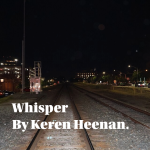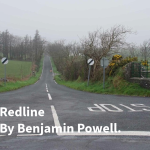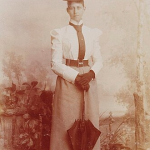By Kavita Nandan.
Thirty-six years ago, when I had barely turned seventeen, my father was kidnapped from the Fiji Parliament in session. His abduction was a small part of the unravelling of a nation, but for me and my mother, it was the main event.
At 10.10 am on 14 May 1987, ten masked and armed soldiers led by Colonel Sitiveni Rabuka, third in command of the Royal Fiji Military Forces, entered the Fiji House of Representatives through its low windows, taking control of the Parliament. At that point, they forced the Prime Minister, the Ministers and Backbenchers into two army trucks and drove them to the Queen Elizabeth Military Barracks.
Trapped in the back of an airless truck with cocked guns pointed at them for fifteen minutes must have felt like an eternity.
It was beginning to drizzle in Suva.
I was relieved that when my father was taken he was not alone, as I figured there was greater safety in numbers; it would be harder to inflict harm on a bunch of people than on an individual. Now, I know that’s not true. It makes me weirdly grateful that back then, we were dealing with guns and not rockets or bombs.
The possibility of him being killed was something that my mind couldn’t grasp. It was only later, that I realised how close I had been to losing my father.
The day of the coup became tempestuous rapidly, although it had started differently – the morning was bright, still and opaque, blue skies stretching like an endless source of benevolence. There were no clues on what was about to unfold. The sea waves glittered in the morning sun.
Our housegirl, a woman in her thirties with hair that she could miraculously stick a pencil into without it falling out, cheerfully washed the dishes. She had the broad, friendly face of many Fijian women – a face that we failed to interpret.
I sat at the table in the kitchen impatiently finishing off a bowl of cereal, making a quick mental note to revisit the juicy and ripe mango I had seen near the housegirl’s quarters yesterday and claim it for myself. I was in a hurry to leave for the university as I was giving my first literature seminar.
My mother was in the bedroom getting dressed. She was going to give me a lift on her way to her college. My father had left earlier that morning. I noticed that he didn’t eat his breakfast even though he usually had a robust appetite. His face was glowing, and there was an excited energy about his movements as he put on his only suit and tie while shuffling papers of a speech he had written the night before.
He didn’t want to be late for the radio talk show. I overheard him saying to my mother that this was an opportunity to reinforce the public’s decision to elect his party. Afterwards, he would be going to Parliament. It had only been a month since he was appointed Minister of Health, a privilege of which he was very proud. Before he left, he kissed my mother goodbye on her lips.
I entered and exited my parents’ bedroom several times to hurry my mother up as if she were being deliberately slow. The commercial station on the radio was switched on, lazily playing songs when the news flash of the Colonel’s coup came through. My mother was speechless. Still in her underclothes, she stumbled against the double bed, her hand covering her mouth.
My mother’s vulnerability made me feel weak. So much so that despite the terrible news, I insisted that she drop me to the campus so that I wouldn’t be late for my presentation. That day and many days after, my mother never went to work, and I never went to university. Ever since then, the thought of giving an oral presentation makes my heart freeze.
My mum gave in to her emotions throughout my father’s incarceration – she didn’t eat meals, didn’t sleep, and went over and over again about what, in her feverish imagination, my father must be going through. Then she took me by surprise when, with the other wives of the captives, she applied for a writ of habeas corpus, arguing that their husbands had been illegally detained. Their decisive action contributed to their release.
During this time, I’d survived in two ways: by believing that my father was indestructible and by aligning myself with the drama of the coup; the reporters were eager and I was keen to claim the role of the tragic but brave daughter of the imprisoned Minister.
Out of three children, I was the only one present during the coup. At the time, my elder brother and sister were studying in Australia and London. I answered the reporters’ questions with false heroism while my father was going through a terrible ordeal and my mother was experiencing an inner hell.
*
Today, I see that seventeen-year-olds can be quite wise and worldly, but I was far from that. My upbringing was that of a privileged and sheltered Fiji-Indian girl growing up in a small city, Suva, on an island in the Pacific. I have many fond memories of that time.
The spacious wooden house that we lived in was near the university and next door to the Vice Chancellor’s residence. Our conjoining gardens were a paradise of innumerable fruit trees – coconut, mango, pawpaw, banana and jackfruit – and frangipani and hibiscus flowers, from which I took liberally. It didn’t occur to me that I might have been trespassing.
We grew up believing that the whole island was ours and we were free to move around and to live as we pleased. This was not the house we lived in when the coup took place but it is the house that I remember because of the feeling of abundance it holds for me.
I remember those weekends my cousins and I spent skipping all the way to Suva Point, trying to survive the hot road with bare feet, alternating between screaming and laughing, sitting like a princess in the backseat as my father drove along the seawall in the evenings, enjoying the sight of families freely picnicking and relaxing by the sea. I was allowed to take the open-windowed bus to the town, eat vegetarian samosas at the Hare Krishna restaurant, and spend hours bargaining in higgledy-piggledy shops for a sarong or a pair of sunglasses.
Time for us was a mirage, hazy and always in the distance. We never caught up with it until the day of the coup.
My favourite event of the year was the Hibiscus Festival in Albert Park, opposite the Parliament House. I would wander around the food stalls with my friends and watch the women parade for the beauty contest, fantasising that one day I would be crowned Miss Hibiscus. I had no interest in politics; that was the domain of adults.
In the future, I would see these events for what they were – boring small-town stuff – but back then they made me feel at home.
Post-coup a cloak of despair and dereliction descended over the city. I saw signs of poverty and psychic trauma during those few times I returned to Fiji. Because we had left soon after the second coup that took place four months after the first, I had been saved from the depressing experience of being cast out from the spaces and places of our everyday. Those who stayed were not as lucky or maybe they were luckier because, at least, they still had a home of a kind.
It felt like I spent more time with our Fijian housegirls than I did with my family. Employing Fijian women to do our housework and nannying was not something that we questioned. One memory stands out in particular because I feel ashamed of it.
After school, sitting at the kitchen table, I said nastily to the housegirl who had simply indicated she was hungry, ‘Mum said you have to use the staler bread first.’ And then I asked her to make me a cheese sandwich from the fresh bread. I claimed this moment of superiority sneakily. As a young girl and the youngest in the family, I had little power.
At the time, I was mostly innocent and didn’t realise that our world came apart because of the uneasy power relationship that existed between our two communities.
The coup was a result of many factors: economic disparity, racial tensions, the ambition of certain politicians and their reluctance to give up power – the Labour Party-NFP Coalition had won the elections for the first time after eighteen years of Alliance rule. Also, the country’s inability to come to terms with a crucial part of their history – the indentured migration of Indians to Fiji.
It was no coincidence that the coup had been conducted on 14 May 1987, the same day, one hundred and eight years later, that the first sailing ship of indentured Indians had arrived in Fiji in 1879. It was the failure of our communities to connect. It was also colonialism’s typical disregard of the consequences of shifting people around the world – uprooting them from one place and planting them in another for self-profit, and abandoning them to their fate.
I remember when we were allowed to visit my father for five minutes while he was being held at the Prime Minister’s residence. The detainees were shifted there from the barracks. It was the fourth day.
We sat at a small table – my mother and I on one side and my father opposite us – in a concrete courtyard. My mother’s hand lay on my father’s thigh. He wore shorts as if it was a relaxed Sunday. His varicose veins on the inner left thigh and down the calf seemed to protrude more than usual. There was an acrid smell in the air; either it came from my father because he hadn’t been allowed to wash or from the soldier guarding him. The day had begun with a level of humidity that our bodies were used to but soon it became uncomfortable. The afternoon’s sickly heat pounded the harsh concrete of the walls that slowly suffocated us.
I was trying very hard not to look at the soldier whose face was covered by a black balaclava. He was hovering above us with an intimidating-looking rifle. I thought that it was unfair that he could see us but we couldn’t see him. But I kept as still as I could bear, made my movements as small as possible for any wrong move on my part, I feared, would be met with a swift response from his gun.
This was a visceral shift in power. The sun hit the barbed wire that enclosed us and heightened the animal tension of the crowd that had collected behind it.
*
I have thought about this experience countless times – it seems to exist like a tragic refrain in my psyche. I’ve written about it too; each time some details are added and others are removed. I don’t know if all of my memories are even real anymore. I don’t know if it matters whether they are.
It is a fact though that television footage of my parents walking down the stairs of Government House after my father was sworn in as a Cabinet Minister of Parliament exists. My father looks happy and hopeful, my mother by his side, looks beautiful in an elegant sari but the footage is lost somewhere in news archives.
It should not have been surprising when my unemployed father went into a depression soon after the first coup. I remember one day when we were complaining that he never did any housework, the dishes of all things, he started to cry. He fell against the wall and slid down to the floor weeping and said we didn’t understand what he had been through. I was horrified to see my father in this state.
He had hidden a great deal of what he was feeling: an immense disappointment and sense of betrayal. The very people who were supposed to be protecting the elected government – the armed forces and figures of significant political power such as the Governor General and the former Prime Minister – had done the opposite.
The Labour Coalition had won fair and square. After eighteen years of being ruled by a conservative political party, this was meant to be a new era of belief. The coup shattered our world of hope and new vision for Fiji.
At this moment, he allowed himself to break down. It was a rare occurrence. I reflected on what it was that allowed him to resurrect his life. He forgave Rabuka somehow, he got involved in rewriting Fiji’s constitution, he wrote fiercely and compassionately about democracy, the vulnerability of a small country in a global world, his own experience of the coup, the need for hope, Gandhi, a future of peace and reconciliation.
When the coup was conducted, he was forty-six years old. It was only when I turned that age that I realised the tender reality of being forty-six and having to face something so overwhelming: the dream of a better and fairer Fiji fading and the personal experience of being held at gunpoint. At forty-six, I didn’t have half his resilience.
Was it my mother’s love and unwavering support that allowed my father to recover? Was it his Hindu philosophy and happy village upbringing that allowed him to accept fate? Was it his strong belief in Gandhi’s wisdom and non-violent approach? My grandmother’s Christian faith and prayers? Was it all the other parts of who he was – a teacher, a poet, a husband, a father – that made the difference?
There were also irreconcilable losses, such as cancer, a battle for thirteen years that my parents fought together and, for the most part, won.
*
I knew my mother had suffered inwardly because I had been with her on the morning of the coup, the afternoon of the sixth day on which they were released and the death-like days, the aftermath of shock, that followed. As the years went by, she seemed to compartmentalise that time. Even today she will talk about it by lamenting something trivial, such as the loss of her records. Her collection of Neil Diamond, Elvis Presley, Fleetwood Mac, and Solid Gold Hits records was left behind when we left Fiji for Australia soon after the coups. She had left things of far greater monetary value, both jewellery and saris, but their loss didn’t seem to mean as much.
My mother left her family in Delhi to marry my father and live in Fiji. When he shifted from academia to politics, she gave in to his fierce ambition but after the coup, she was ready to leave Fiji. My father knew that this time he would have to let go of the country he loved because he loved my mother more. He knew at the very least, she deserved some peace of mind. I have never seen her buy a single record since we moved to Australia.
When we left, we took one suitcase per person with the vague idea that we would send for our things later. Sitting in our plane seats with our seatbelts fastened, we didn’t know if we would be removed from the plane at the very last minute. My father’s name was on a list of ‘criminals’ who were not permitted to leave the country. But no soldier stormed onto the plane as we were fearing and we left Fiji on that flight. We don’t know why; was it Pacific-style bungling, a change of heart…
From the plane window, the town of Nadi, known to tourists simply as an international airport but to my father – his birthplace, looked glorious. The sky was covered in blossoms of gold and suffused with a heavenly light, a sunset that I have only ever seen in Fiji. As we flew away, we could see the sea shimmering and outlines of palm trees swaying on land, our land no longer, fading into darkness.
For so long my identity has been caught up in this rupture, even though I am fifty-five now, happily married, the mother of a beautiful boy, a citizen of Australia, a writer, a teacher. None of my peers have experienced what I have. In a strange way that makes me special, and I have made it part of myself.
The more I know about the world and the brutality of men, the more I realise how lucky I am to be able to travel from Sydney to Canberra to see my father, who is now eighty-four years old, watering the garden, cooking his signature dish – lamb curry and sleeping peacefully in his bed. He reads copiously and writes regularly. He loves my mother dearly. My parents have similar interests, they enjoy attending university seminars, despite often returning home complaining that they didn’t hear much of what the speaker was saying. They don’t seem to mind because they are together, have been for sixty years. I am grateful.
The topic of my seminar on the day of the coup was Samuel Taylor Coleridge’s ‘The Rime of the Ancient Mariner’, a poem set in the South Pacific. Since then, so much else has happened but
at an uncertain hour,
That agony returns:
And till my ghastly tale is told,
This heart within me burns.







